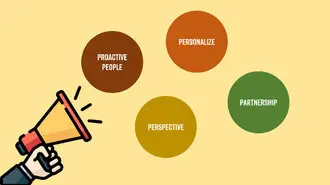Podcasting’s popularity has soared, captivating listeners with its rich audio experiences and storytelling. Beyond entertainment, it’s becoming a crucial tool for boosting brand awareness, moving into a significant role in marketing.
As the digital landscape continues to evolve, businesses and marketers recognise the undeniable impact that podcasting can have on their brand’s visibility, reach, and overall marketing strategy. This blog post will explore why podcasting matters to marketing and how this dynamic medium can be leveraged to connect with audiences, build brand authority, and drive business growth.

So, if you’re curious about the transformative potential of podcasting in marketing, keep reading to discover why it has become an essential component of successful, modern-day marketing strategies.
Want to receive updates? Sign up to our newsletter
Each time a new blog is posted, you’ll receive a notification, it’s really that simple.
What is Podcasting?
Podcasting is creating and distributing audio or video files for online listeners. The term “podcasting” originated from a combination of “iPod” and “broadcasting,” reflecting its early association with Apple’s iPod and the subsequent creation of Apple Podcasts. Interestingly, journalist Ben Hammersley first coined the term’s origin in a 2004 article for The Guardian.
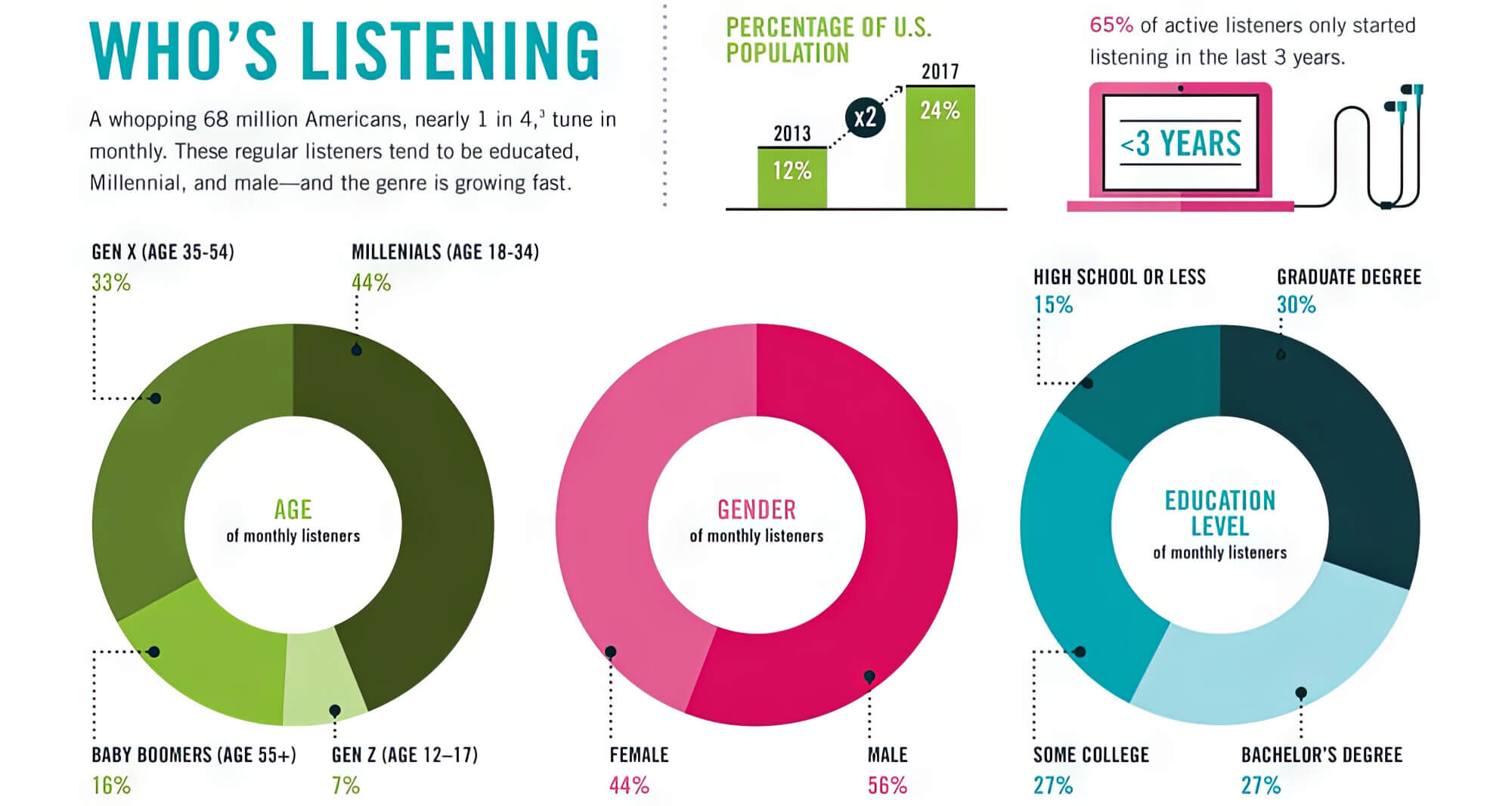
Podcasting has witnessed a meteoric rise over the past decade, thanks largely to audiences who greatly enjoy podcasts. Recent data reveals the staggering availability of over five million podcasts, with more than 70 million episodes globally for individuals who thoroughly enjoy the chance to listen to podcasts.
This staggering growth is fueled by the increasing number of podcast listeners, expected to surpass 504.9 million in the United States alone by the end of this year.
As podcasting continues to gain traction, its significance in the marketing landscape becomes undeniable. Statistics indicate that, Remarkably, most podcast listeners, around 80% in fact, stay tuned for the entire duration of an episode, making them highly active listeners. Furthermore, 62% of podcast audiences take action based on the information presented in podcast ads or recommendations heard during the shows.
Next, let’s explore why audio, in particular, holds such power in the digital age.
The Power of Audio in the Digital Age
Audio has made a remarkable resurgence in an era dominated by visual content, thanks partly to the prevalence of smartphones and other mobile devices. The resurgence of this convenient medium is driven by its aptness for multitasking, allowing audiences to add podcasts to their daily routines like commuting, working out, or doing chores. It caters to the modern lifestyle, where time is precious, and attention spans are limited.
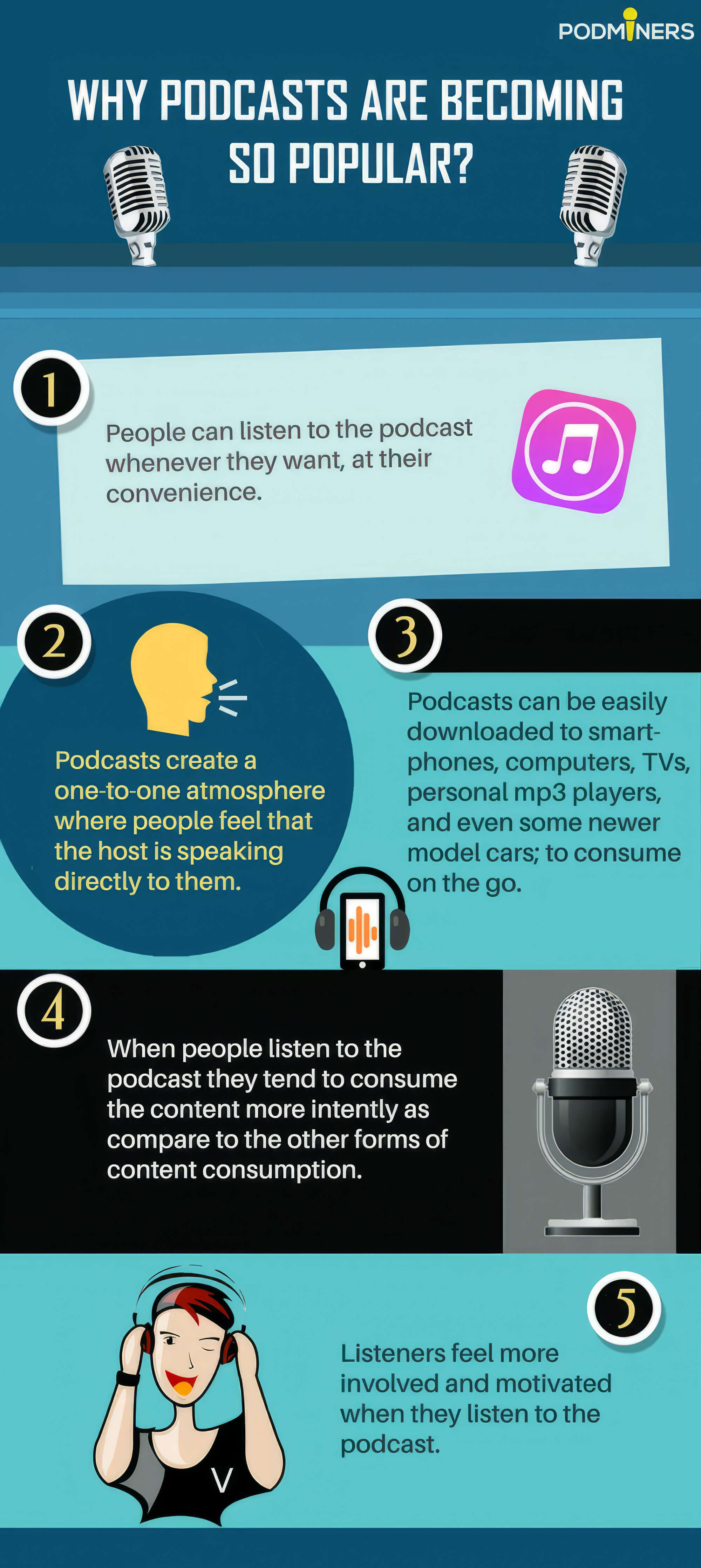
Audio content uniquely grabs attention. Without visuals, it draws listeners in through rich storytelling, engaging soundscapes, and the compelling nature of human voices. This creates a deep emotional bond hard for other mediums to match.
Audio is also incredibly versatile, making it an ideal medium for storytelling. Whether it’s a gripping narrative, an intimate interview, or an informative discussion, podcasts can effectively convey complex messages and ideas across different formats. This versatility enables marketers to craft compelling stories tailored to meet their specific audience’s interests.
The Benefits of Podcasting for Marketing
In this part, we’ll look at how choosing the right podcast titles and using podcasting can really beef up your marketing strategy.
1. Building Loyal Listeners
Podcasting offers a unique opportunity to build dedicated listeners. With each episode, you have the chance to connect with listeners on a personal level. Over time, this connection can evolve into brand loyalty, with listeners eagerly anticipating each new episode.
2. Establishing Authority and Expertise
Podcasting allows marketers to position themselves or their personal brand as industry authorities. By sharing valuable insights, expert interviews, and thought-provoking discussions, podcasters can establish themselves as trusted sources of information.
3. Amplifying Brand Visibility
Utilising podcasts presents an effective platform to build brand awareness and increase your brand visibility. When motivated listeners of your podcast audience share episodes, it expands your reach organically. Additionally, being featured on popular podcasts in your industry can introduce your brand to broader listeners.
4. Cultivating Authenticity and Trust
Podcasting enables a level of authenticity that resonates with listeners. Unlike scripted video content, podcasts often feature candid conversations, which can build trust and authenticity around your brand.
5. Fostering Community Participation
Podcasts build a sense of camaraderie among listeners, and social media amplifies this bond. When people find a shared interest in your podcast’s niche, they naturally form a community around your brand. This interaction isn’t just passive; it sparks active involvement, like social media chats or discussions in podcast forums.
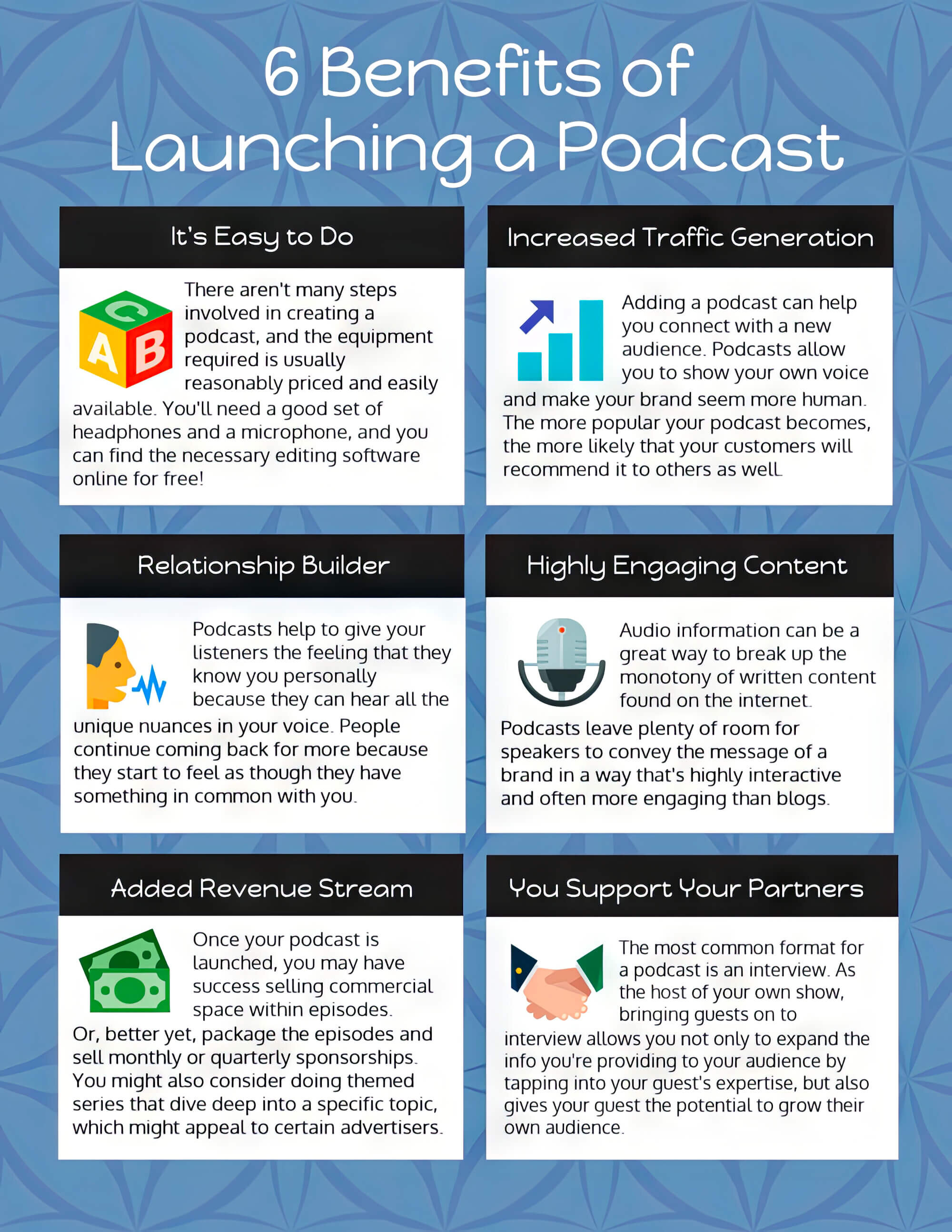
6. Expanding Content Repurposing Opportunities
Once they generate content through their podcast initiatives, marketers can repurpose it across various marketing channels. Transcripts of podcast episodes can be transformed into blog posts or articles, allowing you to reach more comprehensive listeners through written content. Additionally, soundbites or highlights from your podcast can be shared on social media networks, boosting your brand’s reach and interaction.
7. Enhancing SEO and Online Presence
Podcasting can significantly impact your website’s search engine optimisation (SEO). Each episode creates new content and opportunities for relevant keywords, enhancing your website’s search visibility. Furthermore, show notes, hyperlinks, and episode descriptions can increase your digital presence and drive organic traffic to your website.
8. Building a Repository of Evergreen Content
Podcast episodes, once published, remain accessible indefinitely. The perennial nature of podcasting means that as people listen over time, your content attracts new listeners and provides ongoing value. Podcasts maintain their relevance, unlike some content that may need to be updated quickly.
9. Facilitating In-Depth Listener’s Education
Podcasts offer the space for in-depth exploration of complex topics. Marketers can use this to provide detailed educational content that addresses their market’s pain points and questions. In doing so, you establish your brand as a valuable resource for comprehensive information.
10. Measurable ROI and Monetisation Opportunities
Podcasting offers a measurable return on investment (ROI) through analytics that tracks listeners’ activity, downloads, and demographics. In addition, as your podcast grows in popularity, you may explore monetisation avenues such as sponsorships, mid-roll ads, affiliate marketing, or premium content subscriptions, turning your podcast into a valuable revenue asset.
Case Studies: Successful Podcasting in Marketing
Now, let’s move on to real-world examples of successful podcasting in marketing.
HubSpot
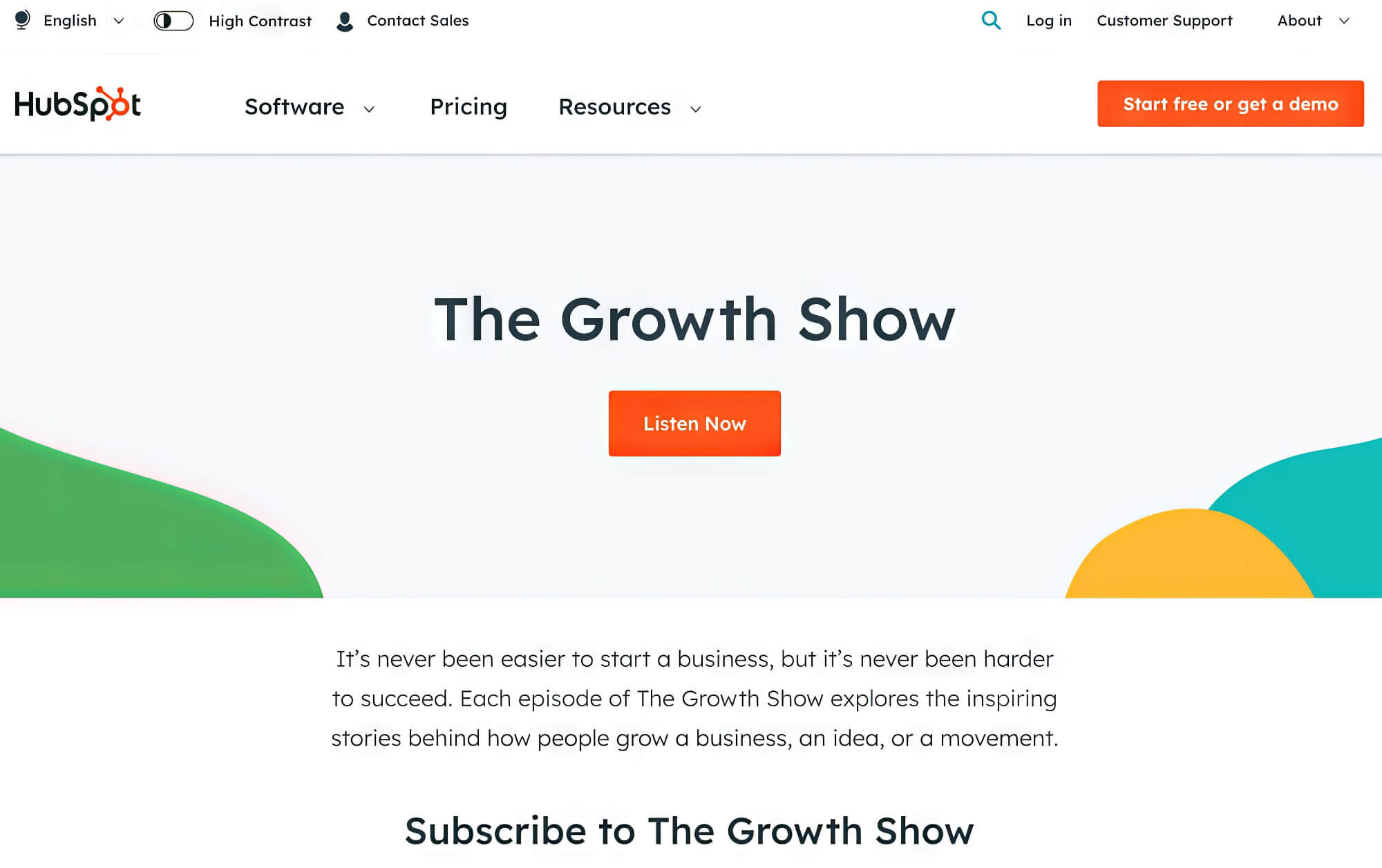
HubSpot, a well-known inbound marketing and sales software company, launched “ The Growth Show” podcast. This podcast featured interviews with successful entrepreneurs, marketers, and business leaders.
HubSpot significantly increased its brand visibility and authority by providing valuable insights and content related to its industry. The podcast attracted a dedicated group of marketers and business professionals who later became potential customers for HubSpot’s software and services.
Mailchimp
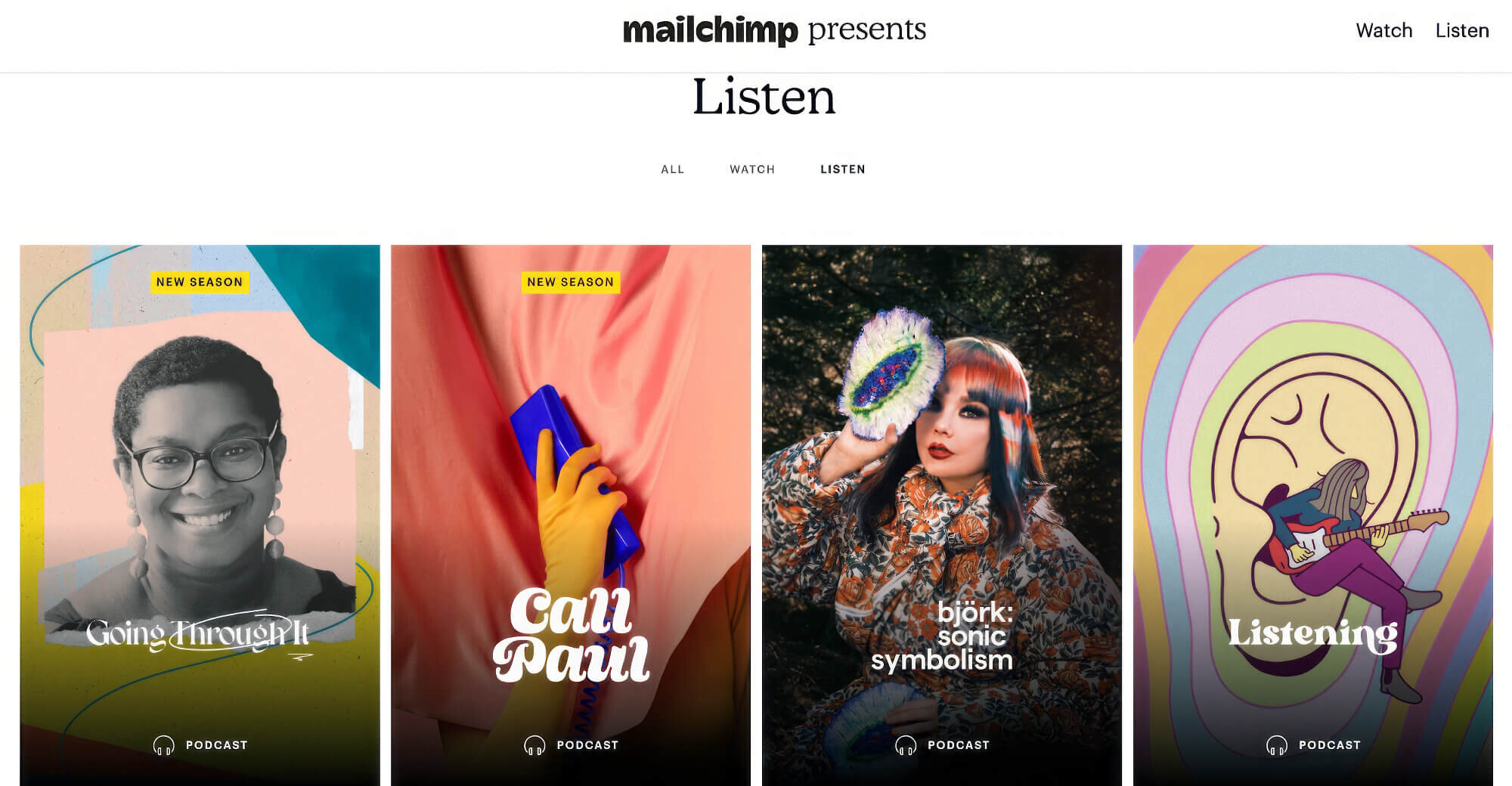
Mailchimp, an email marketing platform, launched a podcast that follows the entrepreneurial journey of a tiny business owner per season. This storytelling approach allowed Mailchimp to connect with its intended listeners of small business owners and entrepreneurs on a personal level.
The podcast increased brand visibility and positioned Mailchimp as a trusted partner for small businesses looking to grow through email marketing. It, in turn, led to increased sign-ups and sales for their services.
Casper
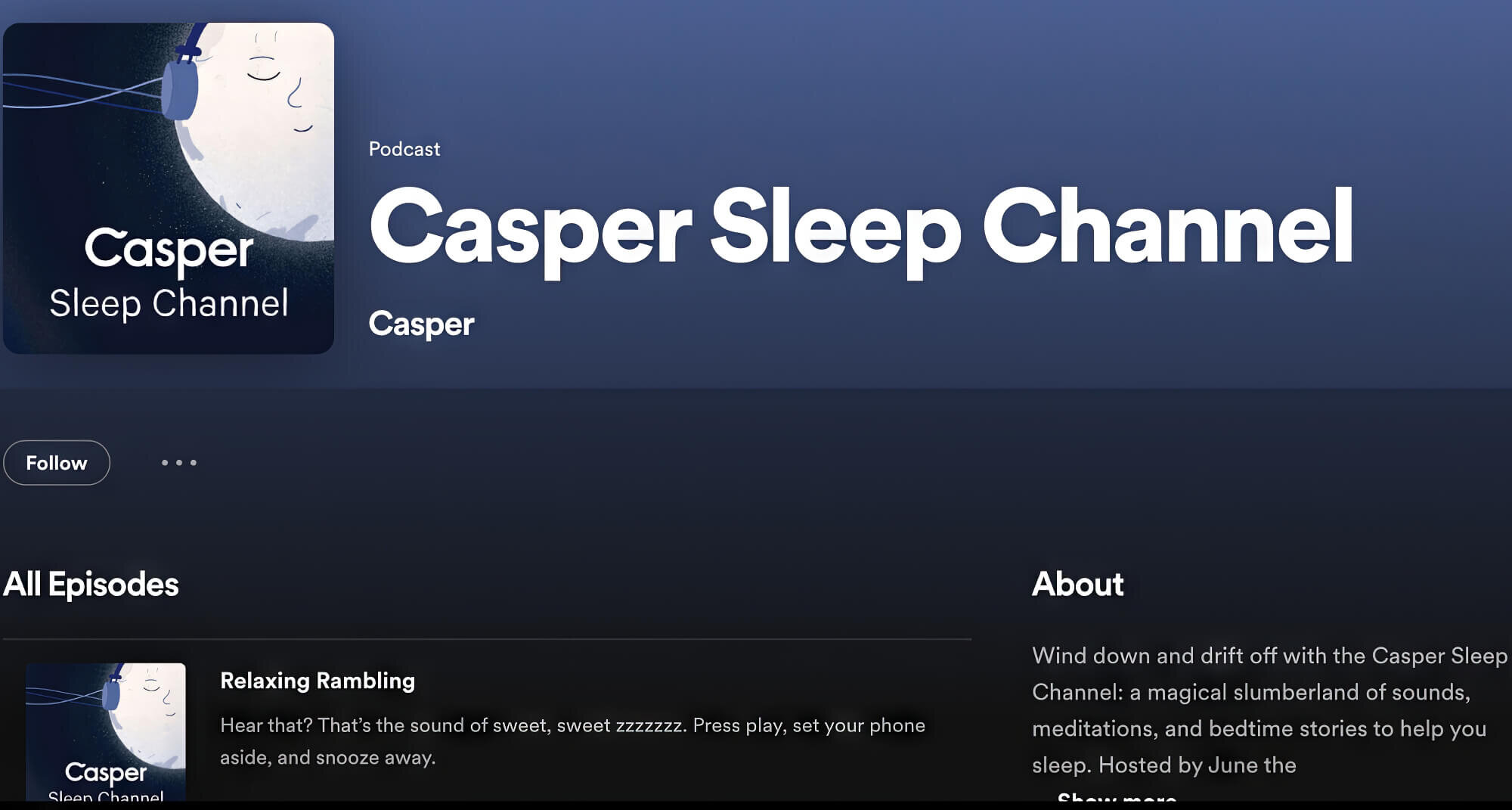
Casper, a mattress and sleep products company, launched “ The Casper Podcast,” which focused on the science and culture of sleep. By providing valuable content related to its core product offering, Casper enhanced its brand authority and educated listeners about the importance of quality sleep.
This educational approach helped Casper become a trusted resource in the sleep industry and contributed to increased sales of their mattresses and sleep-related products.
Squarespace
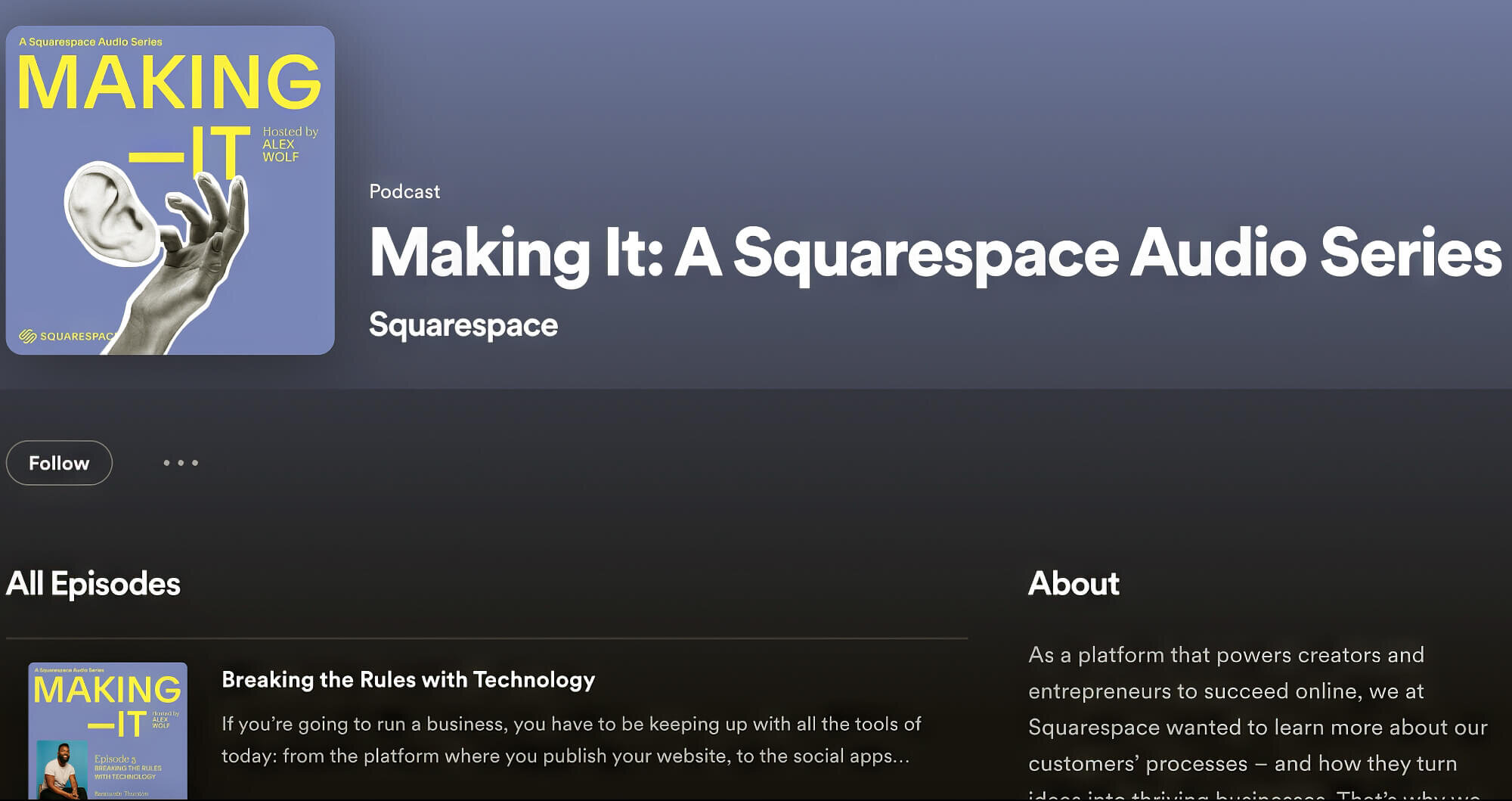
Squarespace, a website building and hosting platform, has utilised podcast advertising as a primary marketing strategy. By sponsoring numerous podcasts across different genres, Squarespace has increased its brand visibility and positioned itself as a supporter of content creators.
It has positively impacted its brand perception, as podcast listeners often associate Squarespace with enabling creativity and entrepreneurship. The brand is seen as a reliable and user-friendly platform that empowers users and businesses to create their online presence, enhancing the perception of Squarespace as a facilitator of innovation and self-expression.
Blue Apron
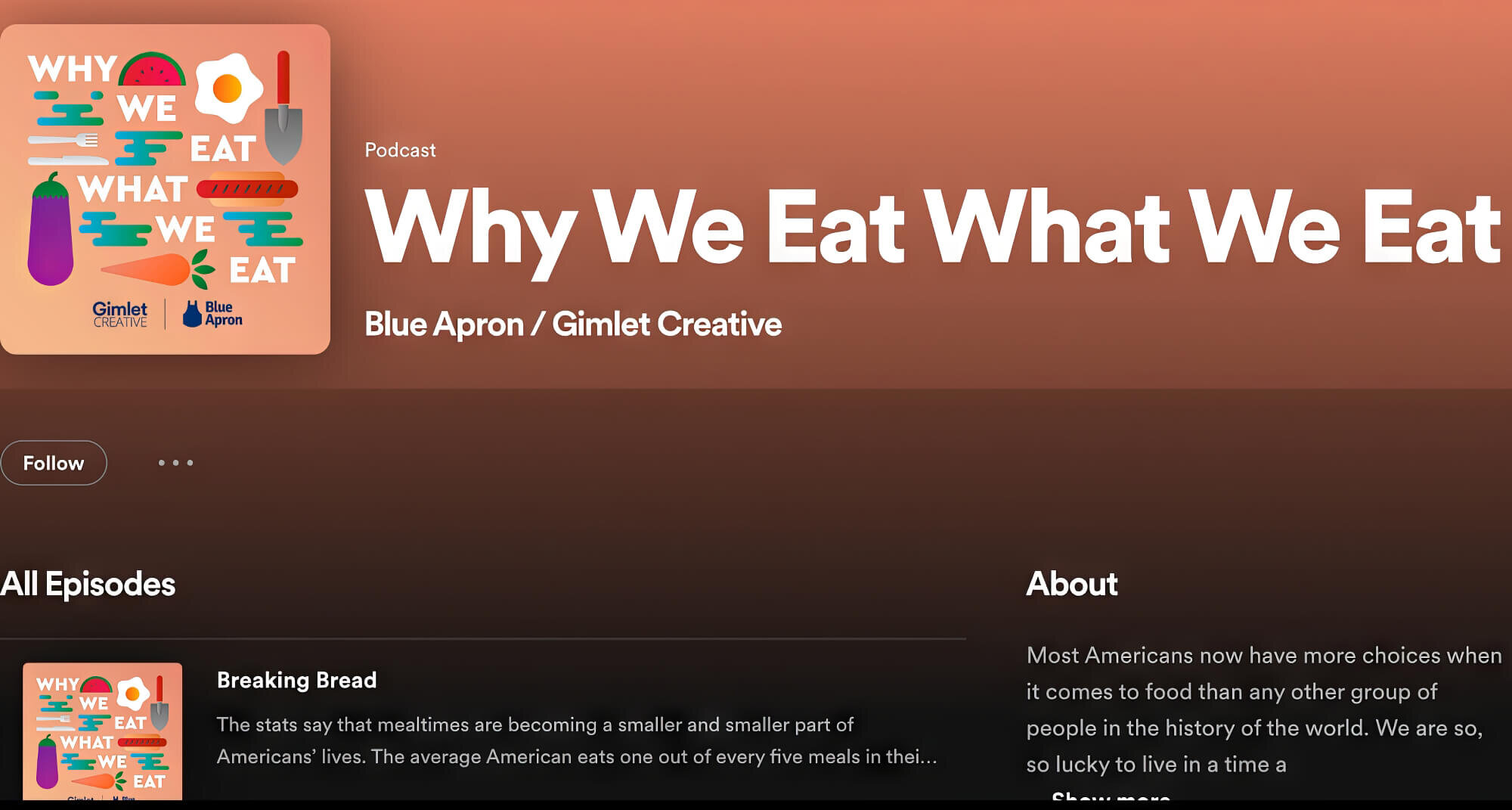
Blue Apron, a meal kit delivery service, has leveraged podcast advertising with its “ Why We Eat What We Eat” series to reach food-oriented and interactive listeners. By sponsoring cooking and food-related podcasts, Blue Apron has positioned itself as a convenient solution for consumers who want to cook delicious meals at home.
This approach has helped change the brand perception of Blue Apron from being solely a meal kit delivery service to an educational resource that promotes cooking skills and culinary exploration. Podcast listeners often perceive Blue Apron as a brand that supports culinary learning and encourages healthier eating habits.
Audible
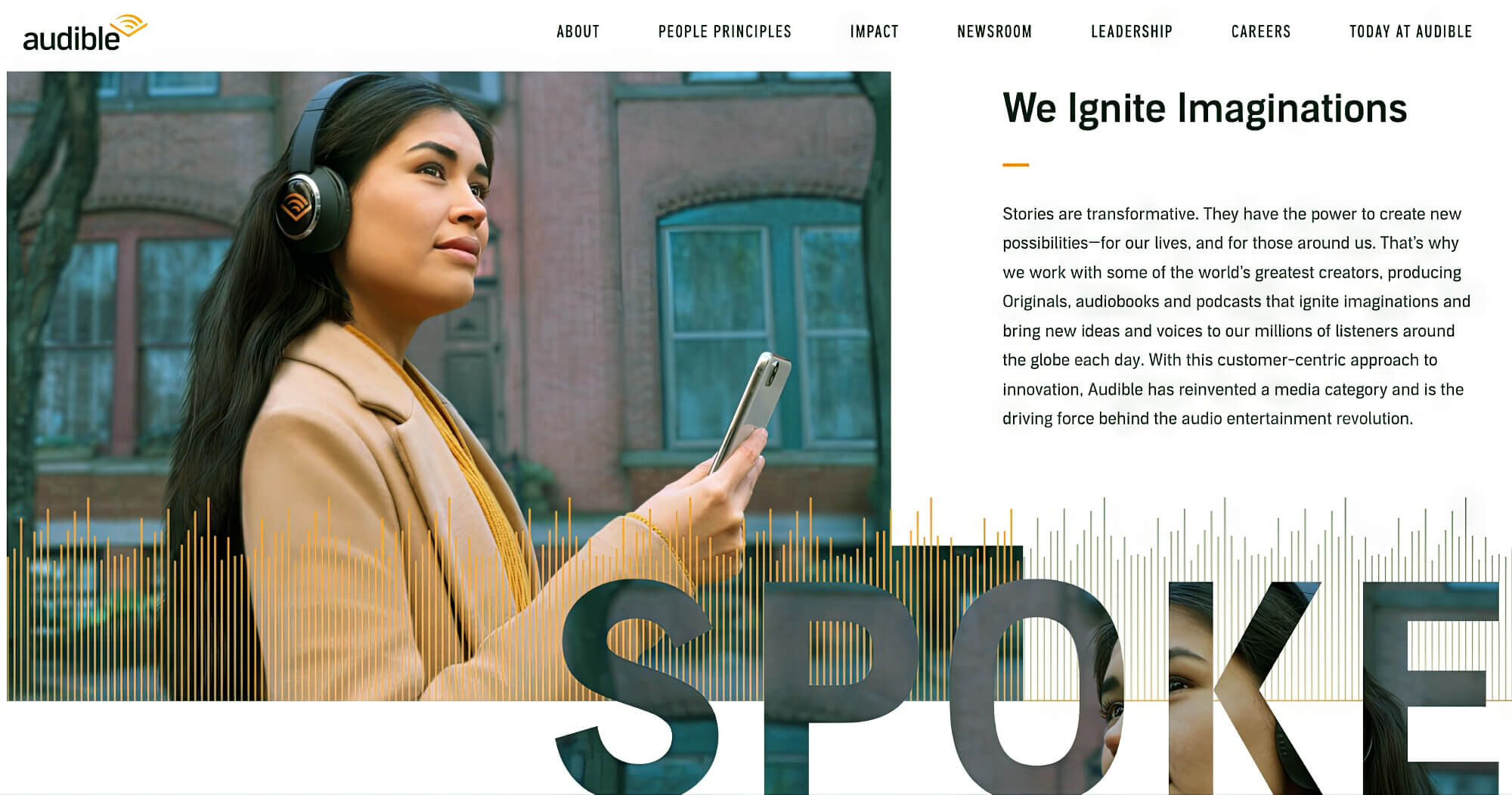
Audible, an audiobook and spoken-word entertainment service, has been actively involved in podcast advertising and production. Audible has strengthened its association with storytelling and literary culture by sponsoring popular podcasts and creating original podcast content.
It has enhanced the brand perception of Audible as a company that values the spoken word and encourages a love for books and narratives. Listeners often view Audible as a brand that promotes intellectual activity and a deeper connection with literature, contributing to a more positive brand image.
Podcasting Best Practises for Marketers
In this section, let’s discuss best practices for marketers venturing into podcasting and integrating it into their existing digital marketing strategies.
1. Content Planning and Strategy
The journey to developing a successful podcast capable of building a loyal following begins with a meticulously devised content plan and strategy. Define your intended market, outline episode topics, and establish a content calendar. Consistency is critical to building and retaining followers.
2. Production and Promotion
Invest in quality equipment to produce enhanced audio files to ensure a professional and engaging listening experience. Make sure to promote your podcast across multiple channels; don’t overlook social media, email newsletters, your website, and other platforms where your audience is likely to be active.
3. Building Relationships with Listeners
Interaction with your listeners is vital. Encourage feedback, respond to comments and emails, and consider incorporating listener questions or suggestions into your episodes.
4. Guest Collaboration and Networking
Collaborating with guests from your industry or related fields can add depth and variety to your podcast content. It also provides opportunities for cross-promotion, as guests will likely repost the episodes they appear on with their listeners.
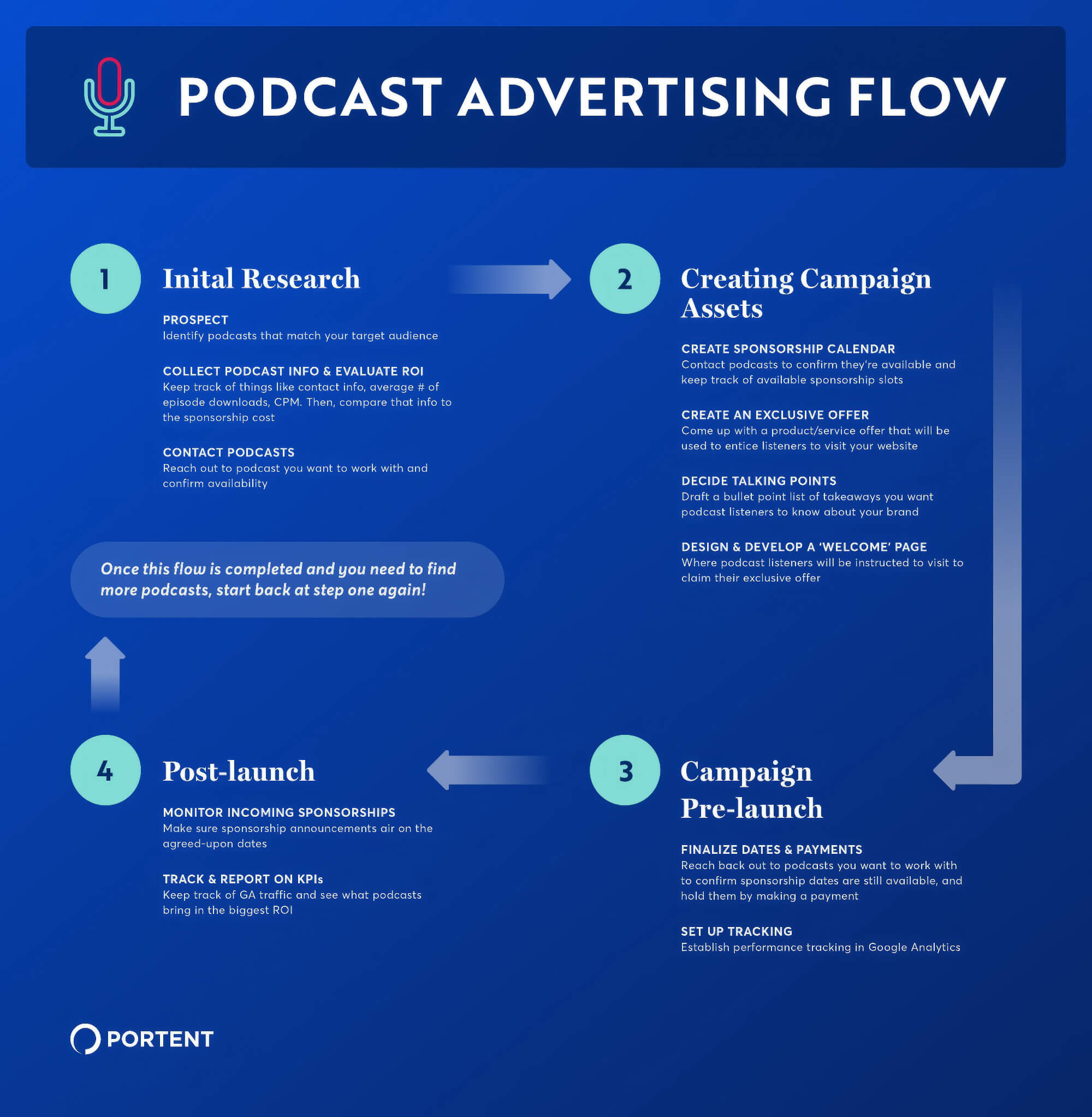
5. Consistent Release Schedule
Regularity is vital in podcasting. Stick to a consistent release schedule, whether weekly, bi-weekly, or monthly, as this predictability matters to most podcast listeners. This predictability helps build anticipation among your listeners, keeping them active and returning for each new episode.
6. Quality Audio Editing
Invest time and resources in professional audio joiner and editor software. Clean, well-edited episodes enhance the listening experience and reflect positively on your brand’s quality standards. It includes removing background noise, ensuring precise audio levels, and editing out mistakes or unnecessary pauses. It’s also good to utilise tools such as M4A to MP3 converters to ensure your podcast is compatible with most devices.
7. Practical Show Notes and Transcripts
Accompany each episode with comprehensive show notes summarising key points, providing links, and highlighting valuable takeaways. Additionally, offering transcriptions of your episodes not only makes your content more accessible to all listeners but also provides search engine optimisation (SEO) benefits.
8. Community Participation and Social Media
Actively participate with your podcast community on social media platforms. Create dedicated groups or forums where listeners can discuss episodes and connect. Your presence on social media can help cultivate a feeling of belonging and loyalty among your listeners.
9. Guest Outreach and Preparation
When you include guests on your podcast, it’s crucial to prepare them well and make them understand the format, which might differ from other podcasts. Provide clear guidelines, topics, and expectations in advance. A well-organised and respectful approach to guests contributes to the overall quality of your show.
10. Feedback and Continuous Improvement
Continuously seek feedback from your listeners. Encourage reviews, surveys, or direct communication to understand what your listeners enjoy and what could be improved. Use this feedback to refine your content and podcasting strategy over time.
Podcasting as a Content Marketing Strategy
Next, let’s explore how podcasting fits seamlessly into a broader content marketing strategy, supplementing the overall digital marketing efforts.
1. Integrating Podcasting into the Marketing Mix
Strategising the production of your own podcast as an effective content marketing medium and having your own podcasts is a valuable addition. It complements written content, videos, and social media by offering a unique way to interact with your listeners.
2. Leveraging Podcast Analytics for Insights
Podcast analytics provide valuable insights into listener behaviour. Marketers can track metrics such as downloads, listener demographics, and activities. These insights can inform content strategies and refine focused listeners’ profiles.
3. Enhancing Brand Storytelling
Podcasting enriches your brand storytelling. It allows you to delve deeper into narratives, explore behind-the-scenes aspects, and humanise your brand. You can make a more immersive and emotional brand story through interviews and personal anecdotes.
4. Expanding Global Reach
Podcasts transcend geographical boundaries. They have the potential to connect with global listeners. By leveraging podcasting as part of your content marketing strategy, you can extend your reach beyond traditional marketing constraints, reaching diverse markets and demographics.
5. Establishing Thought Leadership
Thought leadership is a coveted position in any industry. Podcasts provide a platform to share your expertise, discuss industry trends, and offer innovative insights. Consistently delivering valuable content akin to a radio programme positions you and your brand as thought leaders, garnering respect and trust within your industry.
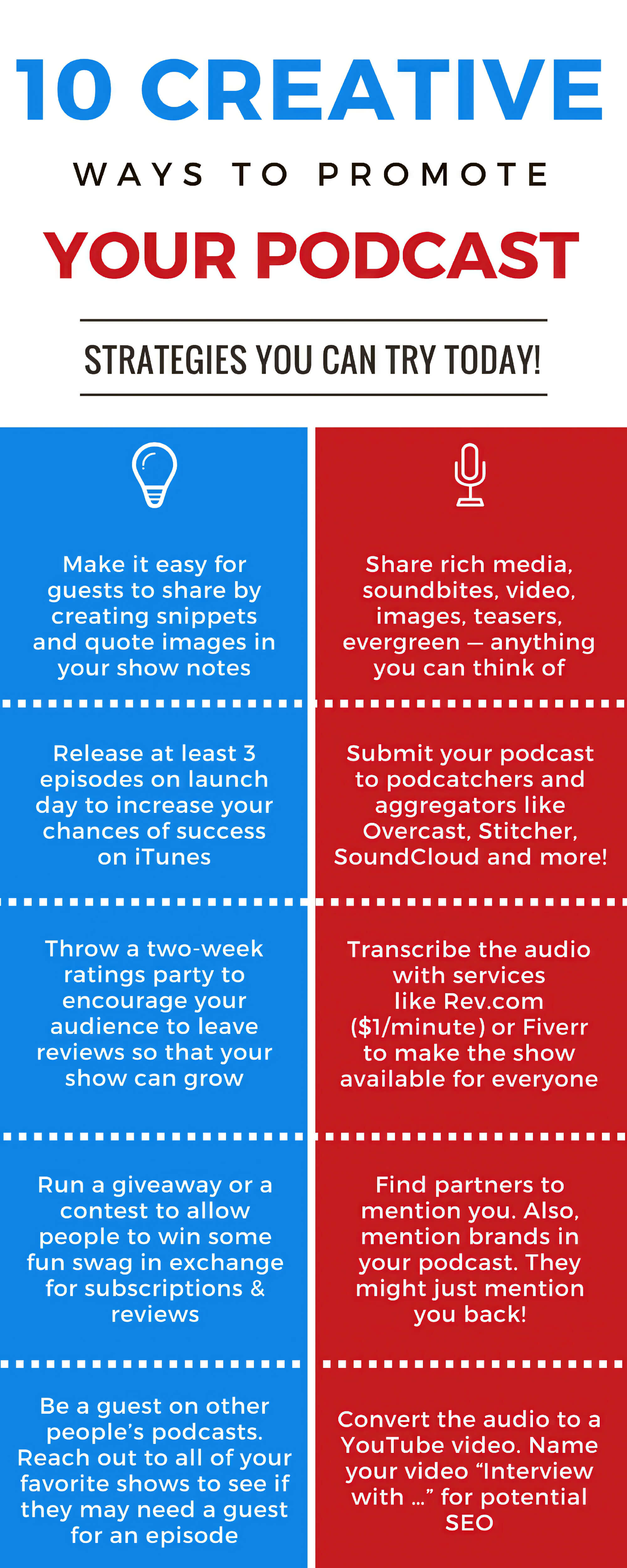
6. Nurturing Long-form Content
While short-form content has its place, podcasting allows you to explore topics in-depth. Using the engaging format of podcasting, marketers can dive into complex subjects, providing comprehensive information and value to their listeners. This long-form content cultivates interactions and loyalty, as listeners appreciate the depth of discussion.
7. Building Strategic Partnerships
Collaborations with industry experts, influencers, or complementary brands are a common podcasting strategy and an effective method to build brand awareness. By featuring guests or co-hosting episodes, you can build strategic partnerships that extend your reach and tap into new listeners. These collaborations also add credibility to your brand.
8. Enhancing Market Interactivity
Podcasting offers a unique opportunity to interact with your market actively. You can encourage listeners to submit questions, participate in polls, or even host live Q&A sessions through your podcast. This interactivity strengthens your connection with your market and keeps them active with your brand.
9. Diversifying Content Offerings
Podcasting allows you to diversify your content offerings effortlessly. You can create special series, thematic episodes, or bonus content that aligns with your marketing goals and caters to specific market segments. This variety keeps your listeners active and eager for fresh content.
10. Strengthening Brand Credibility and Trust
Consistency in podcasting and delivering valuable content can enhance your brand’s credibility and trustworthiness. When listeners repeatedly find value in your episodes, they are more likely to trust your brand and your expertise, which can lead to increased loyalty and positive word-of-mouth recommendations.
Furthermore, let’s peer into the future of podcasting in marketing.
Looking Ahead: The Future of Podcasting in Marketing
The future holds exciting possibilities for podcasting in marketing, from sharper content personalisation to wider monetisation options, including podcast-specific outro ads. Trends such as interactive podcasts, AI-driven content recommendations, and enhanced market interactivity techniques are on the horizon. Some others include:
The Role of AI and Data Analytics
Artificial intelligence and data analytics will serve an increasingly significant role in podcasting. AI can help personalise content recommendations for listeners, and data analytics will provide deeper insights into listeners’ behaviour and preferences.
AI-Powered Software Advancements
As podcasting evolves, AI-powered tools and software applications will become indispensable. Innovations like music visualisers and audio waveform generators will enhance the visual appeal of podcasts.
A music visualiser can turn audio segments into captivating visual displays, adding charm for video podcast viewers. On the other hand, Audio waveform generators can provide dynamic visual representations of audio content, making it more accessible to those with hearing impairments and enhancing the viewing experience.
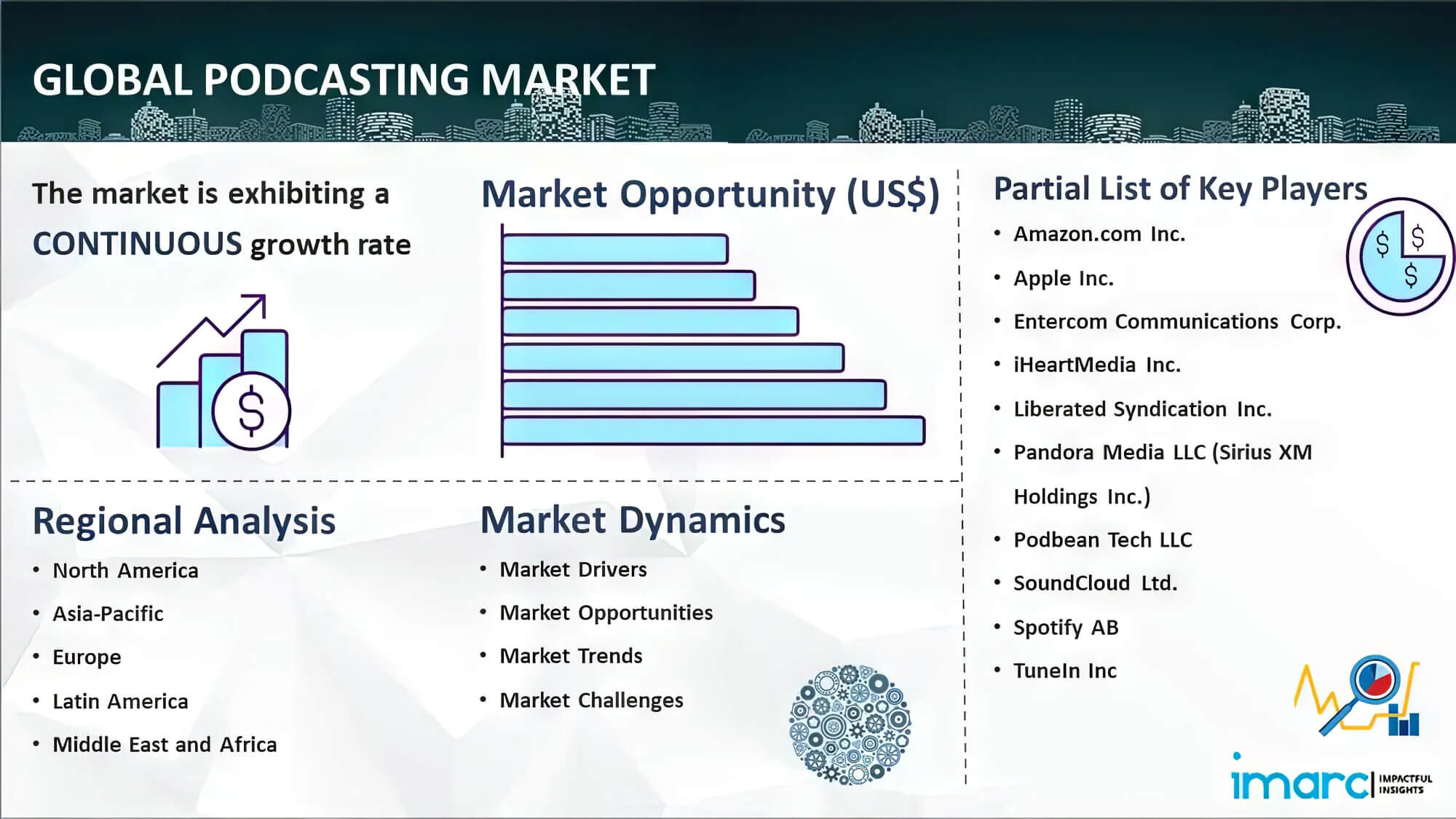
Rise of Video Podcasts
Video podcasts are expected to become more popular, with AI avatars playing a key role. These avatars mimic human expressions and gestures, making video content more engaging and lively.
These avatars can be customised to match a brand’s identity, allowing for consistent and unique representation across various episodes. This innovation opens up new possibilities for visually dynamic and immersive podcasting experiences.
Content Personalisation at Scale
AI is set to revolutionise content personalisation in podcasting, curating tailored content to cater to at least one specific interest of the listener. Algorithms will analyse listener behaviour, preferences, and past interactions to curate customised content recommendations. This level of personalisation will increase listener satisfaction and extend the reach of podcasters as content becomes more relative to each listener.
Amplify Your Brand!
In conclusion, rather than being just a fleeting trend, podcasting is a dynamic and influential medium that marketers should consider especially valuable for those planning to create their own podcasts. It allows brands to connect with listeners authentically and engagingly, build authority, and amplify their visibility.
As we look ahead, the future of podcasting in marketing promises even more exciting developments. It’s time for businesses to recognise the lasting impact of podcasting on marketing strategy and seize the opportunity to leverage podcasting as a powerful marketing tool.
Don’t miss out on the audio revolution—start podcasting today!

